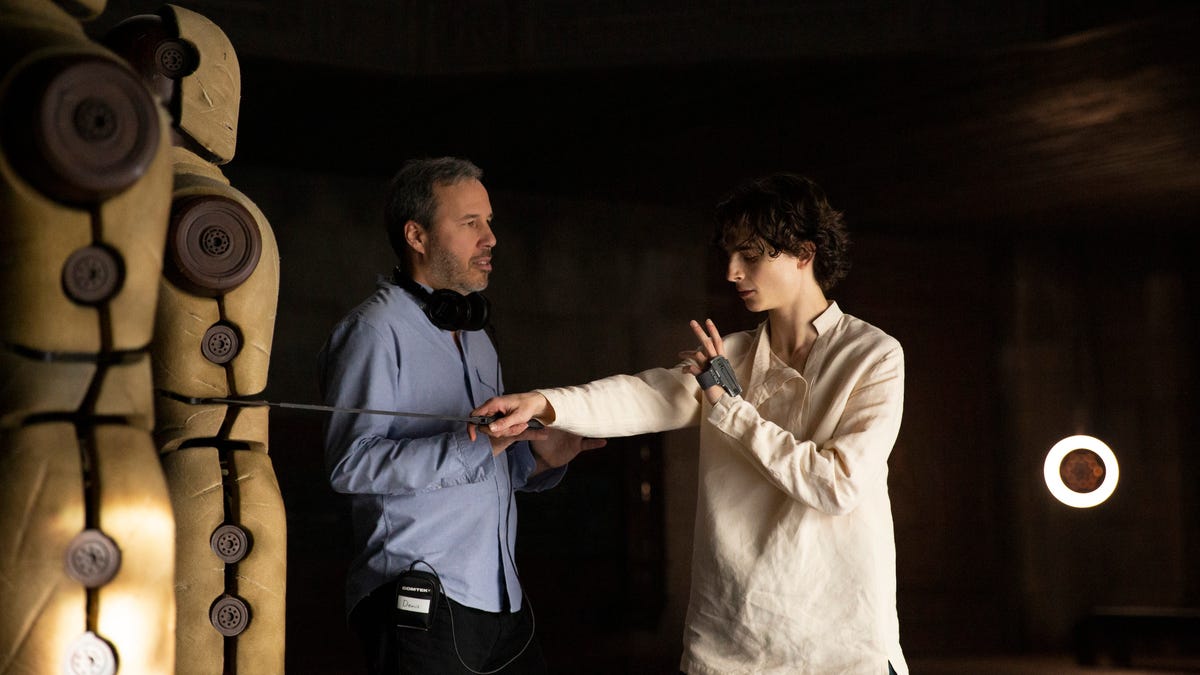Denis Villeneuve should be having a ball right now. He's just made Dune, the biggest film of his career, adapting a classic sci-fi novel he's loved his entire life. But he doesn't seem able to enjoy it: the director is still unhappy that Dune will stream on HBO Max, he only got to do half the story, and he's all too aware the proposed sequel/continuation hangs in the balance.
"It's a very awkward position I'm in right now," said Villeneuve in a Zoom call with press from the Venice Film Festival, where Dune premiered Sept. 3. "It's true that I did just half of a movie. It's a crazy way to do things ... It's like doing half of a painting or half of a symphony and saying, Wait, everybody, we'll continue in two years ... But those movies are very expensive to make, and I agreed with the deal to do the first part. It's a gamble."
This movie is only Dune Part 1, and Part 2 isn't yet definitely confirmed by Warner Bros, the movie studio which financed it. Which is particularly frustrating, because though Villeneuve's Dune is a stirring and stunning sci-fi epic on the grandest scale it definitely doesn't stand alone. The film ends annoyingly abruptly, making it just halfway through the storyline of Frank Herbert's original novel. Part 1's box office performance has to be strong enough to justify Part 2, but pandemic anxiety plus the option to stream the film at home may curtail hopes for the sequel.
Dune, in theaters and streaming on HBO Max now, is the latest in a string of blockbusters that appear on a streaming service at the same time as the big screen, much to the dissatisfaction of filmmakers like Tenet director Christopher Nolan. When movie studio Warner Bros. first revealed its scheme to release the year's blockbusters online, Villeneuve went so far as to write an article for Variety blasting Warner Bros., HBO Max and their parent company AT&T.
Dune was delayed by a year from its original 2020 release date, but the pandemic continues as the delta variant disrupts reopening plans across the globe. Yet Villeneuve stands by his insistence that the film should be seen on the big screen. "Movies need to be experienced first in theaters," he said in Venice.
"I love streaming," the director quickly clarified. "Streaming is a very powerful tool. I use it to revisit cinema history all the time. It gives me access to tons of nice movies from the past -- but we're talking about the present."
Star-studded Dune is full of striking imagery on a vast scale.
Speaking of movies from the past, the 53-year-old French-Canadian writer and director said he was first in line as a Dune-obsessed teenager when David Lynch's 1984 adaptation came out.
"I remember being mesmerized at the beginning of it," Villeneuve recalled.
But as the film went on, Villeneuve felt disillusioned by some of Lynch's choices (or perhaps more accurately, choices made by producer Dino De Laurentiis, who recut and drastically shortened the film for release).
"Lynch is a master," said Villeneuve, "by far one of the best filmmakers over the past 50 years. It's not about comparing or competition. It's just about that book that was beside my bed since 40 years, and the ideas that I love about the book were not on screen yet, so that's why I came back to it."
So even if Villeneuve's experience of making the film is beset by headaches, he can take comfort from having crafted a magisterial sci-fi epic. "I was trying to be in contact with that energy that I had when I was 13 or 14 years old," he said, no doubt speaking for many sci-fi and fantasy obsessives who discovered Dune and other sci-fi galaxies in their formative years. "That very ambitious, very arrogant teenager that wanted to conquer the world and was dreaming so big. I wanted to be in contact with the visions I had at that time."


